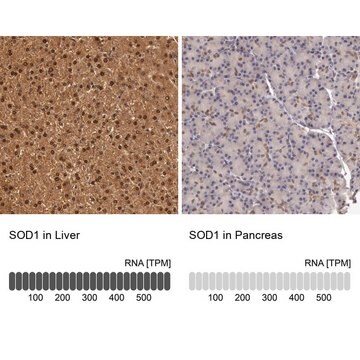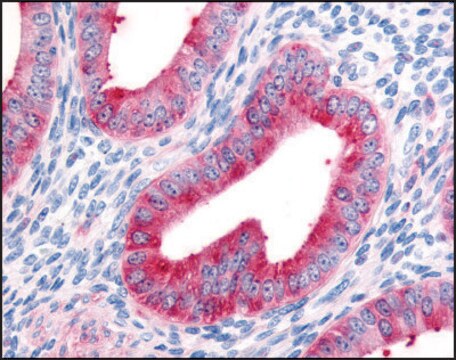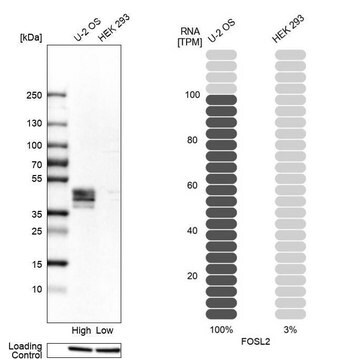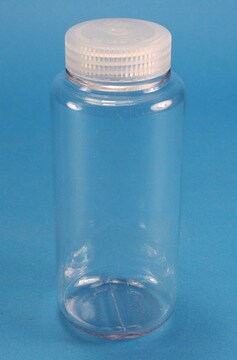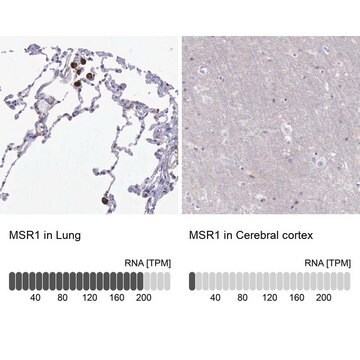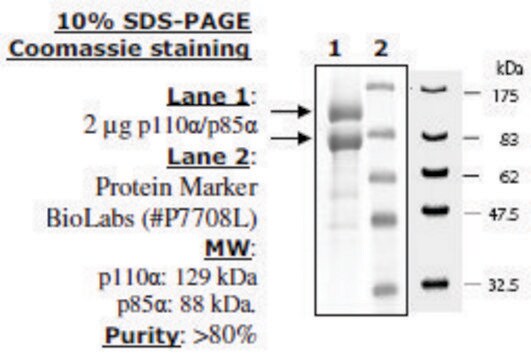General description
Protein crumbs homolog 1 (UniProt P82279) is encoded by the CRB1 (also known as LCA8, RP12) gene (Gene ID 23418) in human. The Crumbs protein was first identified in Drosophila as a key developmental regulator of apical polarity. In mammals, the family is composed of three genes, CRB1, CRB2 and CRB3. CRB1 is synthesized with a signal (a.a. 1-25) sequence that is removed posttranslationally to yield the mature protein with a large extracellular domain (a.a. 26-1347) composed of 19 EGF-like domains (a.a. 30-1333) and three Laminin G-like domains (between EGF-like domains 11&12, 12&13, 14&15), followed by a transmembrane domain (a.a. 1348-1368) and a short cytoplasmic tail (a.a. 1369-1406) that interacts with PALS1/MPP5, PATJ and MUPP1 to form the core CRB complex. The apical CRB complex resides at the subapical region above the adherens junctions between photoreceptors and Müller glia cells in mouse and human. In adult mouse retinas, CRB1 is expressed only in Müller glia cells and maintains adherens junctions between photoreceptors and Müller glia cells, while in human retina, CRB1 protein is expressed at the subapical region in photoreceptors and Müller glia cells. CRB1 mutations are found in various retinal dystrophies, chronic and disabling disorders of visual function, including Retinitis pigmentosa 12 (RP12) and Leber congenital amaurosis 8 (LCA8).
Specificity
The immunogen peptide sequence is only partially (~65%) present in spliced isoform 2 (UniProt P82279-2), reactivity toward this isoform is likely, but has not been confirmed. Expected to react with all the other four spliced isoforms reported by UniProt (P82279).
Immunogen
Epitope: Near C-terminus.
KLH-conjugated linear peptide corresponding to a human CRB1 sequence near the C-terminus.
Application
Research Category
Neuroscience
Research Sub Category
Sensory & PNS
This Anti-CRB1 Antibody, clone 1C2.1 is validated for use in Western Blotting for the detection of CRB1.
Quality
Evaluated by Western Blotting in Y79 human retinoblastoma cell lysate.
Western Blotting Analysis: 2.0 µg/mL of this antibody detected CRB1 in 10 µg of Y79 human retinoblastoma cell lysate.
Target description
~200 kDa observed. Target band size appears larger than the calculated molecular weights of 151.2/154.2 kDa (isoform 1 mature/pro-form), 148.4/151.4 kDa (isoform 2 mature/pro-form), 139.1/142.1 kDa (isoform 3 mature/pro-form), 104.3 kDa (isoform 4), and 92.07/95.05 kDa (isoform 5 mature/pro-form) due to glycosylation (isoform 4 contains no signal peptide sequence). Uncharacterized band(s) may appear in some lysates.
Physical form
Format: Purified
Protein G purified.
Purified mouse monoclonal IgG3κ antibody in buffer containing 0.1 M Tris-Glycine (pH 7.4), 150 mM NaCl with 0.05% sodium azide.
Storage and Stability
Stable for 1 year at 2-8°C from date of receipt.
Other Notes
Concentration: Please refer to lot specific datasheet.
Disclaimer
Unless otherwise stated in our catalog or other company documentation accompanying the product(s), our products are intended for research use only and are not to be used for any other purpose, which includes but is not limited to, unauthorized commercial uses, in vitro diagnostic uses, ex vivo or in vivo therapeutic uses or any type of consumption or application to humans or animals.
